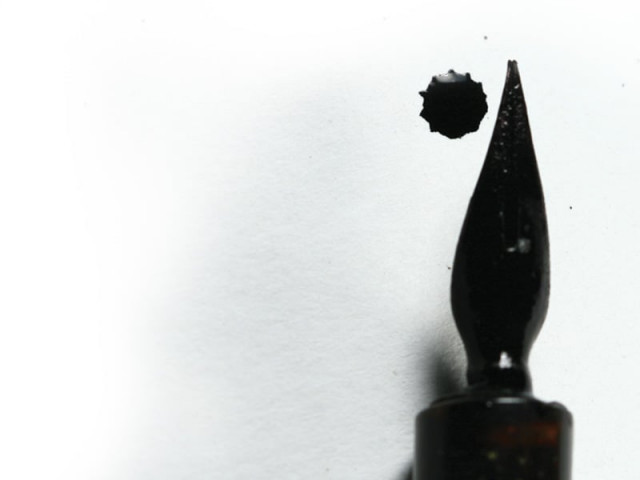For harmony: North Waziristan poets have a change of heart, resist with words
Nearly a decade of militancy and violence has hardened the poets from North Waziristan Agency.

First the Khan of the hujra used to beat me, and now the cleric beats me. These are some of the simplified lines from poet Heran Mohmand that, despite their misery, resist by virtue of naming and shaming the perpetrator of violence.
Nearly a decade of militancy and violence has hardened the poets from North Waziristan Agency. The bloodshed and insecurity has taken a toll on their work while simultaneously painfully turning it into fodder for their writings which reflect the chaos they witness every day, says poet Saleem Zaheer.

The tribal poet, a member of the Wahdat Adabi Tolna of Miranshah, has written several war poems that emanated out of his first-hand experience of the conflict in North Waziristan.
“Poets jot down what they observe in their surroundings and their work is rife with personal experiences and perspectives on their environment,” he says. This is why the poetry of Waziristan is markedly different from what you will find in parts of Khyber-Pakhtunkhwa which speak more of resistance. “Us Waziristanis are suppressed from all sides,” Zaheer says. “Not only are we victims of militancy but of Pakistani society as well.”
But despite living in deplorable circumstances, the agency’s poets have long managed to organise a monthly meeting in which they recite poetry on peace, which is the need of the hour. These gatherings emerged from the tradition of reciting poetry at events like weddings. Abdul Nasir Makhdoom, a Pashto poet from Bannu, is one person who has regularly visited North Waziristan for such gatherings. A large number of people show up, he says. “If there is peace they will write about peace and if there is war the poet will write on war,” he explains. There is no escaping your environment.

According to Makhdoom, many poets who regularly wrote war poems have come to Bannu and seen the miseries of the people displaced from the agency. “They have changed their minds and want to write about peace now,” he claims. The poets seem to understand that they can do something to lift spirits and push for peace in the area. They felt bound by the realities of war. Their conscience did not allow them to turn away from it; they had to write about it. But now they understand that resistance in the form of imagining peace is also important. In the words of one poet:
“The words brought to me by the Zephyr are clear. The message of the massacre in every village is clear. By telling lies, the conscience pricks, if you tell the truth, you will know your fate.”
They feel, however, that their contributions are generally neglected by the media. Zaheer laments that the government and the people of Pakistan have neglected tribal poets for decades. “Neither the government nor any civil society organisation has arranged any platform for poets to showcase their work,” he adds.
The good news is that in Bannu, the Wazir tribes of the agency have their own literary societies and have decided to hold a gathering on Eid for internally displaced poets,” adds Makhdoom. “The agenda will be peace.”
Published in The Express Tribune, July 8th, 2014.













COMMENTS
Comments are moderated and generally will be posted if they are on-topic and not abusive.
For more information, please see our Comments FAQ